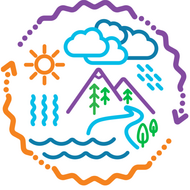Schoolyard Habitat Comparison
(View Complete Item Description)This document provides a simplified version of an investigation that uses quadrats to compare habitats in your schoolyard. Depending on your focus, the activity can be adapted to compare the diversity or amount of ground insects, invertebrates or plants in two areas. Students use the Next Generation Science Standards’ Planning and Carrying Out Investigations practice and the Cause and Effect and/or Stability and Change crosscutting concepts to build understanding of the needs of animals, differences in ecosystems and/or change in ecosystems.
Material Type: Lesson Plan



















